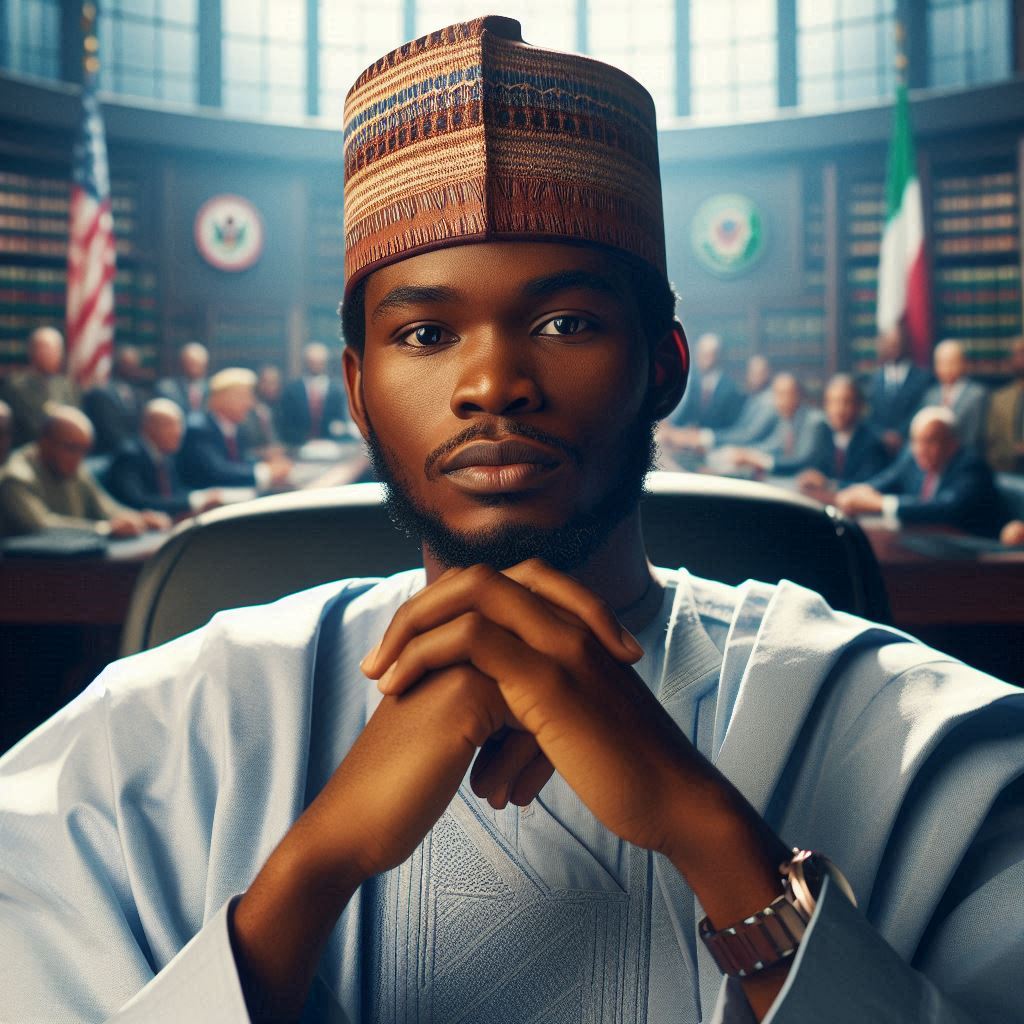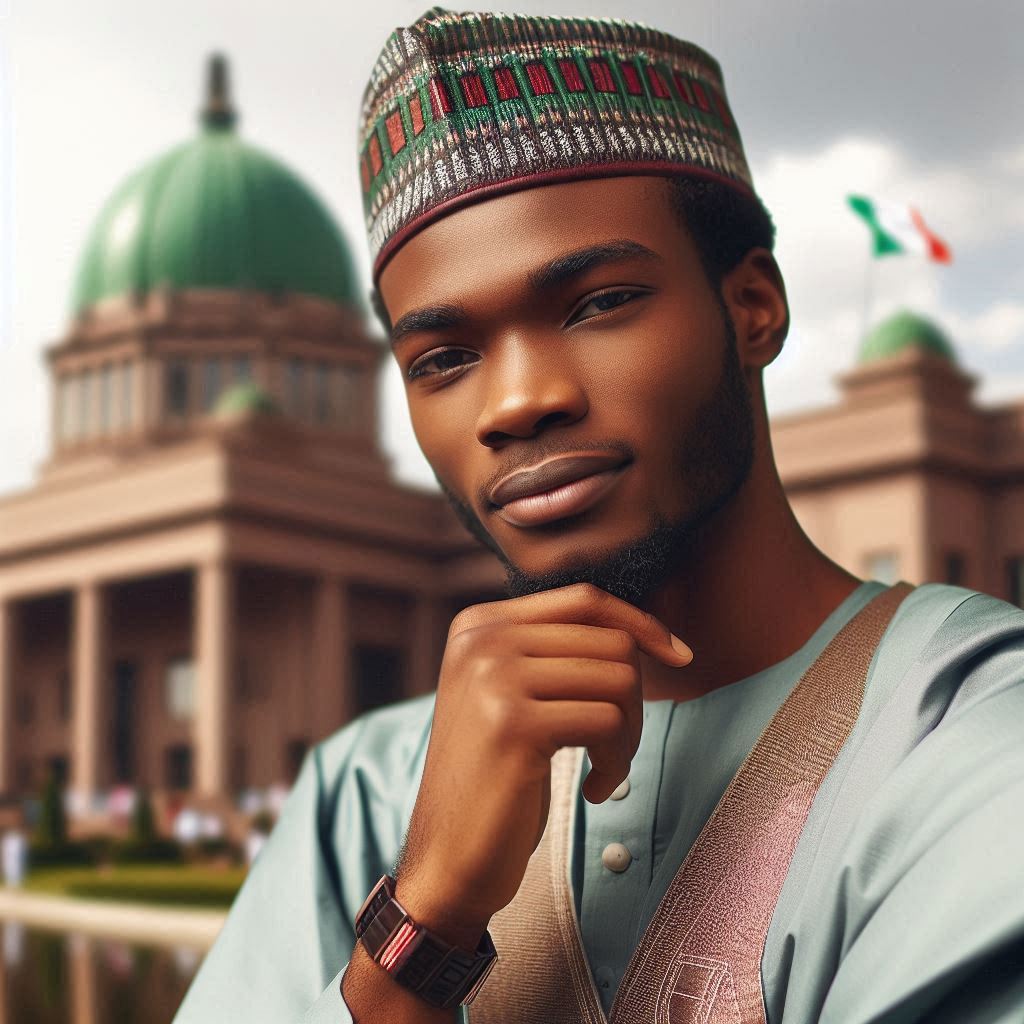Introduction
Comparative politics delves into diverse political systems, examining similarities and disparities across nations.
Nigeria, Africa’s most populous country, provides a compelling case study.
With its rich tapestry of ethnicities, cultures, and historical legacies, Nigeria’s political landscape reflects both complexity and dynamism.
Definition of Comparative Politics
Comparative politics involves scrutinizing political structures, institutions, and processes across different countries to discern patterns and variations.
It seeks to unravel the intricacies of governance, power dynamics, and policy-making, offering insights into global political phenomena.
Brief Overview of Nigeria’s Political Landscape
Nigeria’s political journey is marked by a blend of triumphs and challenges.
Since gaining independence from British colonial rule in 1960, Nigeria has navigated through periods of military dictatorship and civilian rule.
The transition to democracy in 1999 heralded a new era of promise, yet entrenched issues such as corruption, ethnic tensions, and socioeconomic disparities persist.
Despite its vast potential, Nigeria grapples with governance inefficiencies and institutional weaknesses.
Electoral irregularities, political violence, and inadequate infrastructure undermine the nation’s democratic aspirations.
The proliferation of ethno-religious cleavages further complicates the political landscape, posing obstacles to national cohesion and development.
In comparison to other countries, Nigeria’s political trajectory offers unique insights into the complexities of democratization in diverse, multiethnic societies.
Contrasts with nations like India, Brazil, and South Africa highlight distinctive challenges and opportunities.
Understanding Nigeria’s experiences enriches our comprehension of global political dynamics and informs strategies for fostering inclusive governance and sustainable development worldwide.
In the sections ahead, we will delve deeper into Nigeria’s political evolution, exploring key themes such as democratization, federalism, and the role of civil society.
Through rigorous comparative analysis, we aim to unravel the nuances of Nigeria’s political system and its implications for broader theoretical frameworks in comparative politics.
Political history and development
Comparing Nigeria’s political history with other countries
Nigeria’s political history, like many nations, is marked by a struggle for independence.
In comparison to some countries, Nigeria experienced a relatively rapid transition to self-governance.
However, its post-independence journey was fraught with challenges, including ethnic tensions and military coups.
Countries like India and South Africa share similar struggles, navigating complex societal divisions post-independence.
Yet, Nigeria’s experience is unique, influenced by its diverse ethnic landscape and colonial legacy.
Key events and milestones in Nigeria’s political development
Nigeria’s journey to nationhood began with colonial rule, shaping its political landscape.
The country gained independence from Britain in 1960, a pivotal moment in its history.
Subsequent decades saw a turbulent political scene, characterized by military dictatorships and civilian rule.
Key milestones include the end of military rule in 1999, marking a shift towards democracy.
Recent years have seen efforts to address corruption and promote democratic governance.
How Nigeria’s political history has shaped its current political system
Nigeria’s political history serves as a lens through which to understand its current system.
The legacy of colonialism and ethnic divisions continues to influence political dynamics.
Military rule left a legacy of centralized power and weak institutions, impacting governance today.
Ethnic diversity remains a challenge, with politics often reflecting regional and religious affiliations.
However, Nigeria’s resilience is evident in its transition to democracy and efforts to strengthen institutions.
In fact, Nigeria’s political history offers valuable insights into its present challenges and future prospects.
Read: Political Science Internship Opportunities in Nigeria
Political institutions
When comparing Nigeria’s political institutions with those of other countries, it is essential to consider the structure and functions of key political institutions in Nigeria, analyzing their strengths and weaknesses.
Structure and Functions of Key Political Institutions in Nigeria
- The Presidency: The executive branch is headed by the President, who is both the head of state and government.
- The National Assembly: Nigeria has a bicameral legislature consisting of the Senate and House of Representatives.
- The Judiciary: The legal system in Nigeria is based on English common law, with the Supreme Court being the highest court of appeal.
- The Independent National Electoral Commission (INEC): Responsible for organizing and overseeing elections in Nigeria.
Strengths of Nigeria’s Political Institutions
- Historical Perspective: Nigeria has a long history of democratic governance compared to some other countries.
- Checks and Balances: The separation of powers among the executive, legislative, and judicial branches helps prevent abuse of power.
- Independent Judiciary: The judiciary in Nigeria has shown a degree of independence in decision-making processes.
Weaknesses of Nigeria’s Political Institutions
- Corruption: Nigeria has struggled with corruption in its political institutions, affecting governance and development.
- Weak Rule of Law: Inconsistent enforcement of laws and lack of accountability undermine the effectiveness of institutions.
- Electoral Integrity: Concerns have been raised about electoral malpractices and irregularities in the electoral process.
Comparative Analysis with Other Countries
When comparing Nigeria’s political institutions with those of other countries, it is evident that Nigeria faces both similar and unique challenges.
While Nigeria has made progress in establishing democratic institutions, it still grapples with issues such as corruption, weak rule of law, and electoral integrity.
For instance, compared to countries with more established democratic systems, Nigeria’s political institutions may appear weaker in terms of transparency and accountability.
The prevalence of corruption and a weaker rule of law undermine the effectiveness of governance and limit the trust of citizens in the government.
On the other hand, Nigeria’s historical experience with military rule has shaped its political institutions, leading to a greater emphasis on checks and balances.
The country’s judiciary, though facing challenges, has shown some degree of independence in interpreting the law and providing oversight.
Transform Your Career with Expert Guidance
Get personalized mentorship consulting that’s tailored to your unique path. Our expert advice is actionable and exclusive.
Get StartedOverall, while Nigeria’s political institutions have made strides in transitioning to democracy, there is still room for improvement.
By addressing issues such as corruption, strengthening the rule of law, and enhancing electoral integrity, Nigeria can further consolidate its democratic institutions and foster sustainable development.
Read: Role of Political Studies in Nigerian Policy Making
Political culture and ideology
Nigeria’s Political Culture and Ideology
Nigeria’s political culture is deeply rooted in its diverse ethnic groups, religions, and historical background.
The dominant ideologies in Nigerian politics are often tied to these cultural aspects, shaping the political landscape in the country.
Nigeria’s political culture is influenced by its multiethnic society, with over 250 ethnic groups playing a role in the political dynamics.
Religion also plays a significant role in Nigeria’s political culture, with a majority Muslim population in the North and a Christian majority in the South.
The historical context of colonialism and independence struggles has shaped Nigeria’s political culture, with a legacy of corruption and power struggles.
Comparison with Other Countries
When comparing Nigeria’s political culture with that of other countries, some similarities and differences can be observed.
Like Nigeria, countries with diverse ethnic populations such as India and Indonesia also face challenges in managing political representation and inclusivity.
On the other hand, countries like the United States and the United Kingdom have more established democratic traditions and a stronger rule of law compared to Nigeria.
Religious diversity is a common factor in Nigeria and countries like Malaysia and Lebanon, where religious tensions can influence political decisions.
Influence on Nigeria’s Political System
The political culture and dominant ideologies in Nigeria have a direct impact on the functioning of its political system.
Corruption, a prevalent issue in Nigeria’s political culture, hinders effective governance and undermines public trust in the political system.
Ethnic and religious tensions can influence political decisions, leading to conflict and instability in Nigeria’s political landscape.
The legacy of colonialism has left a mark on Nigeria’s political culture, with challenges in building a cohesive national identity and inclusive political system.
Overall, Nigeria’s political culture and dominant ideologies play a crucial role in shaping its political system, highlighting the need for reforms to address issues of corruption, ethnic and religious tensions, and governance challenges.
By understanding these dynamics and learning from comparisons with other countries, Nigeria can work towards building a more resilient and inclusive political system for the future.
Read: Research Areas in Nigerian Political Science Studies

Explore Further: Mass Communication Internships for Nigerian Students
Discover More: Career Paths in History & Strategic Studies in Nigeria
Discover More: Online Resources for Nigerian Art Students
You Might Also Like: Anthropological Research Trends in Nigeria
Political parties and elections
One of the key components of any political system is the role played by political parties and the electoral process.
In Nigeria, as in many other countries, political parties serve as vehicles for political representation and competition.
Let’s delve into the specifics of Nigeria’s political party system and compare it with other countries, as well as analyze the electoral process and political participation in Nigeria.
Role of Political Parties in Nigeria
- Political parties in Nigeria play a crucial role in the country’s political system.
- They serve as means of political mobilization, representation, and organization.
- Political parties provide platforms for individuals to seek elective positions.
- They also help in shaping public policy and government decisions.
Nigeria’s Party System vs. Other Countries
Nigeria operates a multi-party system, with several political parties competing for power.
Some of the major parties include the All Progressives Congress (APC) and the People’s Democratic Party (PDP).
In comparison, countries like the United States have a two-party system dominated by the Democrats and Republicans.
Other countries have a more diverse party system with multiple parties represented in the legislature.
Electoral Process and Political Participation
The electoral process in Nigeria involves the election of representatives at the national, state, and local levels.
Elections are held periodically, and citizens have the right to participate in the electoral process.
Political participation in Nigeria is influenced by factors such as ethnicity, religion, and socio-economic status.
Citizens can participate in elections either as voters or candidates running for office.
Compared to other countries, Nigeria’s electoral process faces challenges such as voter intimidation and irregularities.
In short, political parties and the electoral process are vital components of Nigeria’s political system.
While Nigeria operates a multi-party system, other countries have different party systems that shape their political landscape.
The electoral process and political participation in Nigeria are influenced by various factors and face challenges that need to be addressed to ensure a free and fair electoral system.
Read: Best Books for Political Science Students in Nigeria
Explore Further: Mass Communication vs Journalism: Key Differences
Governance and leadership
Key issues related to governance and leadership in Nigeria
One of the key issues related to governance and leadership in Nigeria is the prevalence of corruption.
- Nigeria’s governance structures often lack transparency and accountability.
- Leadership in Nigeria has been criticized for its nepotism and favoritism.
- Comparing Nigeria’s governance structures with those of other countries reveals significant disparities.
- Some countries have strong institutions that promote good governance and combat corruption effectively.
- Nigeria’s leadership style is often characterized by strongman politics and authoritarian tendencies.
Challenges and opportunities for governance and leadership in Nigeria
Despite these challenges, there are opportunities for governance and leadership in Nigeria to improve.
- Reforming institutions to promote transparency and accountability is crucial for Nigeria’s development.
- Investing in leadership development programs can help cultivate a new generation of ethical leaders.
- Engaging in international partnerships and collaborations can bring new ideas and best practices to Nigeria.
- Empowering civil society and the media to hold leaders accountable can strengthen governance in Nigeria.
- Encouraging citizen participation in decision-making processes can enhance democratic governance in Nigeria.
Overall, while Nigeria faces significant challenges in governance and leadership, there are also opportunities for improvement and growth.
Learn More: Tips for Marketing Your Fashion Brand in Nigeria
See Related Content: Best Resources for Learning Arabic in Nigeria
Uncover the Details: Faculty Spotlight: Experts in African and Asian Studies
Conclusion
After comparing Nigeria with other countries in terms of comparative politics, several key findings emerged.
Despite facing similar challenges in terms of corruption and governance, Nigeria stands out in its unique blend of cultural diversity and historical legacy.
Implications of these comparisons for Nigeria’s political development and future prospects are significant.
The country can learn from successful models in other countries to improve its democratic institutions and promote transparency and accountability.
Recommendations for further research in the field of comparative politics include exploring the impact of colonial legacies on contemporary political systems, analyzing the role of ethnic diversity in governance, and assessing the effectiveness of international interventions in promoting democracy.




